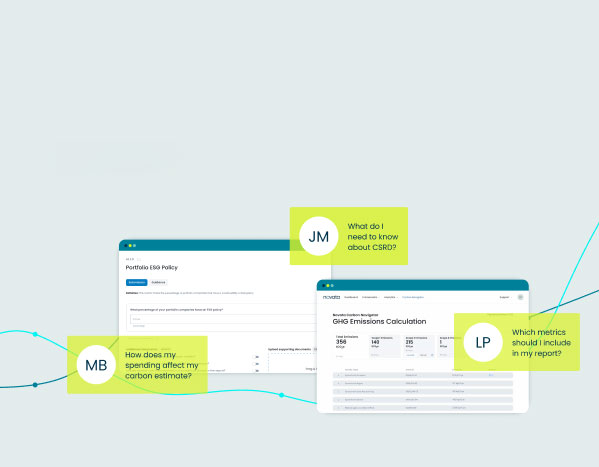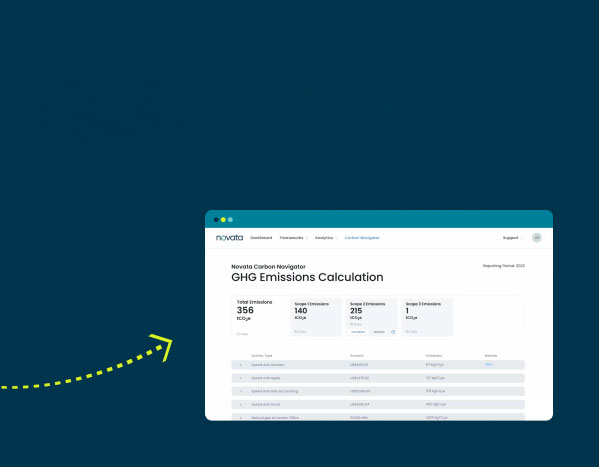In May, I represented Novata at the Sustainable1 Conference in Paris. The panel I participated in, ”Completing Data Gaps: Transparency Matters,” was focused on ESG data, specifically how to complete information gathering and modeling when it comes to ESG datasets. Here are my top three takeaways from the panel conversation, as well as some recommendations for how to get started with ESG reporting:
1. ESG datasets should not be uniform
Depending on the type of company, industry, and region, ESG practices vary greatly, and rightfully so. Therefore, ESG datasets will differ and there will be little overlap aside from a select few issues such as carbon neutrality, board composition, and employee support. The common problem in the ESG data space is actually ESG metrics not being defined uniformly. This lack of standardization (and adoption of existing standards) leads to skepticism over the quality and reliability of ESG data.
2. Education is key
The need for education applies across the value chain in the privately-held company sector: Limited Partners are putting pressure on General Partners, who are in turn pressuring Portfolio Companies “to be doing ESG.” However, there is a lack of common understanding of what ESG is or why companies should have an ESG strategy. Humanizing ESG metrics and providing context is crucial. People need to understand the why: why do my Scope 1 emissions matter, why do I need to calculate the pay equity gap or have robust anti-corruption practices? There needs to be education on how strong ESG practices create resiliency, long-term success, and stakeholder support.
3. Resources are key
“Doing ESG” requires resources. Companies need to first define their ESG strategy, identify key stakeholders, determine which targets they want to set, and track progress. That requires people, knowledge, and more fundamentally, budget. ESG data collection is hard and time consuming. When the Novata Methodology team was refining its recommendations for baseline and advanced metrics, we spent hours collecting ESG data ourselves. We found that even as ESG experts, some metrics were incredibly hard to track and calculate. In order to optimize for success, firms setting out on this reporting journey should properly train people on how to collect the data and give them the right tools to execute.
By engaging in the process of ESG disclosure, companies can understand, measure, and communicate their exposure to ESG risks and opportunities, while also promoting transparency with investors and stakeholders.
As a mission driven public benefit corporation, Novata is committed to working with companies and their reporting partners, engaging with them directly at onboarding and throughout the ESG reporting process. To learn more, reach out to us at support@novatadev.wpengine.com.






